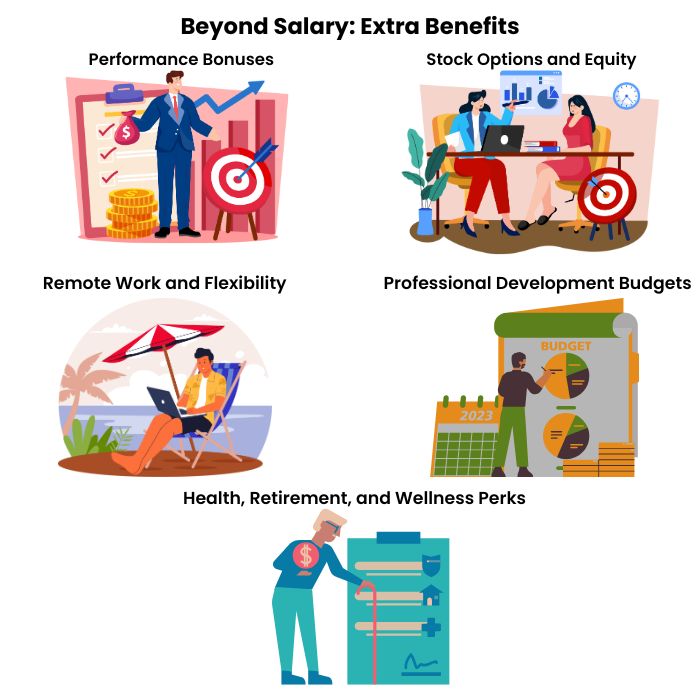Choosing between becoming a data engineer or a data scientist often starts with one big question: Who makes more money? Both roles are in high demand as businesses increasingly rely on data to inform decisions, enhance products, and stay ahead of their competitors. But while they share the same goal—turning data into value—their paths, skills, and paychecks often look very different.
In this guide, we break down salaries for each role, explain what drives pay differences, and illustrate how factors such as location, experience, and skills influence earning potential. By the end, you’ll have a clear view of which career might fit your goals—and your wallet—best.
Understanding the Roles Before Comparing Salaries
Before we talk numbers, it helps to understand what each role actually does. Data engineers and data scientists both work with data, but their day-to-day jobs and goals are very different.
What Does a Data Engineer Do?
Think of a data engineer as the builder of the data highway. They create the systems that collect, move, and store data so others can use it. Their main tasks include designing pipelines, managing databases, and making sure information flows smoothly from source to storage.
You’ll often find data engineers working on projects like streaming real-time data for e-commerce sites, building systems for financial transaction data, or setting up platforms for healthcare analytics. They work closely with cloud services and big data tools like Hadoop, Spark, and SQL-based systems to keep everything running.
What Does a Data Scientist Do?
If data engineers build the roads, data scientists drive on them. They take the data delivered by engineers and turn it into insights that businesses can use. Their tasks include analyzing data, creating predictive models, and sometimes building machine learning systems to answer questions like, “Which product will sell the most next month?”
Data scientists work across industries like tech, finance, retail, and healthcare—basically anywhere data-driven decisions matter. Their job often blends statistics, programming, and communication because they need to explain complex results in ways decision-makers can actually use.
Data Engineer vs Data Scientist: Salary Overview for 2025
In 2025, salaries for data engineers and data scientists will remain close, especially at the start of a career. Entry-level professionals in both roles often earn between $90,000 and $130,000 a year in the U.S., depending on location, company size, and skills.
As experience grows, salaries climb into the $130,000–$170,000 range for mid-level roles, with little difference between the two positions. By the senior level, both can clear $175,000, with some specialists in AI, machine learning, or large-scale cloud systems crossing $200,000–$230,000 in big tech or finance.
On average, data engineers sometimes make slightly more in roles focused on building large data systems, while data scientists often see higher pay in AI-heavy positions or leadership tracks. Location also plays a big role—San Francisco, New York, and Seattle pay 20–40% more than the national average.
So, while both careers offer six-figure incomes, the pay gap isn’t huge, and personal skills, industry, and company choice matter far more than job title alone.
Factors That Influence Salaries in Both Roles
Several factors shape how much data engineers and data scientists earn. While the roles share similarities, each factor can tilt pay scales differently depending on career choices and skills.
1. Education and Certifications
A bachelor’s degree in computer science, engineering, or statistics opens the door to most entry-level roles, but advanced degrees—especially a master’s or PhD—can bump starting pay by 10–20%. Certifications like AWS, GCP, Azure, or Databricks often lead to higher salaries because they prove you can work with the latest tools employers need.
2. Skills and Tech Stack
Pay often rises with specialized skills. Data engineers skilled in SQL, Spark, Hadoop, and cloud platforms earn more because they manage the systems businesses rely on. Data scientists with experience in Python, R, TensorFlow, and advanced analytics command higher pay when they can deliver machine learning or AI models that directly impact revenue.
3. Industry and Company Size
Tech companies and finance firms usually pay the highest salaries because their data problems are big and urgent. Healthcare, retail, and manufacturing also pay well but may offer lower starting salaries. Larger companies or Fortune 500 firms typically offer bigger paychecks and bonuses, while startups may trade lower salaries for stock options or growth potential.
4. Experience and Career Progression
Experience quickly boosts income. Early-career professionals often see the biggest jumps in the first five years as they master real-world projects. Senior roles, such as data architect or AI lead, can pay 30–50% more than mid-level positions.
5. Location and Remote Work Opportunities
Salaries vary widely by location. Roles in San Francisco, Seattle, or New York often pay 20–40% above the national average due to higher living costs and intense competition for talent. However, remote work now lets many professionals earn big-city salaries while living in lower-cost areas.
Which Role Has Higher Earning Potential Long-Term?
Over time, both data engineers and data scientists can build six-figure careers, but their earning paths look a little different.
Data engineers often see steady pay growth as businesses keep investing in big data systems, cloud infrastructure, and real-time analytics. Roles like data architect or cloud data platform lead can bring salaries well above $200,000 in major companies.
Data scientists, on the other hand, often earn more in the long run if they move into machine learning engineering, AI research, or lead data science roles where advanced modeling and decision-making skills drive business strategy. These positions can push total compensation—base pay plus bonuses and stock—well beyond senior data engineering roles, especially in tech and finance.
The bottom line: If you want consistent pay growth, data engineering offers a solid path. If you aim for leadership or AI-driven roles, data science often edges ahead in long-term earning potential.
Additional Benefits Beyond Base Salary

Salary is only part of the total compensation picture. Many companies sweeten the deal with perks that make a big difference in overall earnings and quality of life.
1. Performance Bonuses
Many data engineers and data scientists receive annual or quarterly bonuses tied to company performance or personal goals. These can add 10–20% to total pay in some organizations.
2. Stock Options and Equity
Tech companies often offer stock grants or equity packages. At large firms or startups with growth potential, this can sometimes exceed base pay over time.
3. Remote Work and Flexibility
Many employers now offer fully remote or hybrid roles. This lets professionals earn big-city salaries while living in lower-cost areas, increasing real income without changing base pay.
4. Professional Development Budgets
Companies often fund certifications, conferences, or advanced courses. This not only adds value for career growth but can lead to higher salaries in the future.
5. Health, Retirement, and Wellness Perks
Comprehensive health insurance, retirement plans with employer matching, and wellness stipends can add thousands in yearly value beyond the paycheck.
How to Boost Your Salary in Each Role
Whether you’re a data engineer or data scientist, growing your income means focusing on skills, visibility, and career moves that employers value most. Here’s how:
1. Learn High-Demand Tools and Skills
For data engineers, mastering cloud platforms (AWS, GCP, Azure), real-time data systems, and data pipeline automation can open doors to better-paying roles.
For data scientists, learning advanced machine learning, NLP, or deep learning frameworks like TensorFlow and PyTorch can significantly raise your earning potential.
2. Earn Relevant Certifications
Certifications like AWS Certified Solutions Architect, Google Cloud Professional Data Engineer, or Microsoft Certified Azure Data Scientist often come with immediate pay boosts because they prove you can deliver on complex projects.
3. Build a Portfolio or Publish Work
Showcasing projects on GitHub, contributing to open-source tools, or publishing case studies on LinkedIn helps you stand out and makes it easier to negotiate higher pay.
4. Move Into Leadership or Specialized Roles
Transitioning into data architect, AI lead, or analytics manager roles combines technical skills with leadership, often pushing salaries above the $200,000 mark in major companies.
5. Consider Industry and Location Switches
Moving into high-paying industries like finance, healthcare, or tech, or relocating to cities with strong demand—such as San Francisco, New York, or Seattle—can lead to 20–40% higher compensation, especially for senior roles.
Data Engineer vs Data Scientist Salary: Quick Summary Table
Here’s a quick side-by-side view to make things clear:
Average Salary: Both roles start in the $90,000–$130,000 range for entry-level positions. Mid-level professionals typically earn $130,000–$170,000, while senior specialists can exceed $200,000 in tech, finance, or AI-focused roles.
Top-Paying Industries: Tech, finance, and healthcare often pay the most, with e-commerce and AI-driven companies close behind.
Required Skills: Data engineers focus on SQL, Spark, Hadoop, and cloud platforms, while data scientists need Python, R, machine learning frameworks, and analytics tools.
Growth Potential: Data engineers see steady salary growth through advanced infrastructure roles, while data scientists may edge ahead in AI, machine learning, or leadership positions.
Conclusion
Both data engineering and data science offer high-paying, future-proof careers, but the best choice isn’t only about the paycheck—it’s about matching your strengths and interests with where the industry is headed. If you love building systems and solving data infrastructure problems, data engineering offers steady growth and long-term security. If you’re drawn to analytics, machine learning, and decision-making, data science opens doors to leadership and cutting-edge AI work that can push salaries even higher.
The real advantage comes from staying ahead of the curve—upgrading skills, earning certifications, and taking on roles that link technical expertise with business impact. Those who keep learning and adapting to new technologies will always find themselves at the top of the pay scale, no matter which path they choose.




